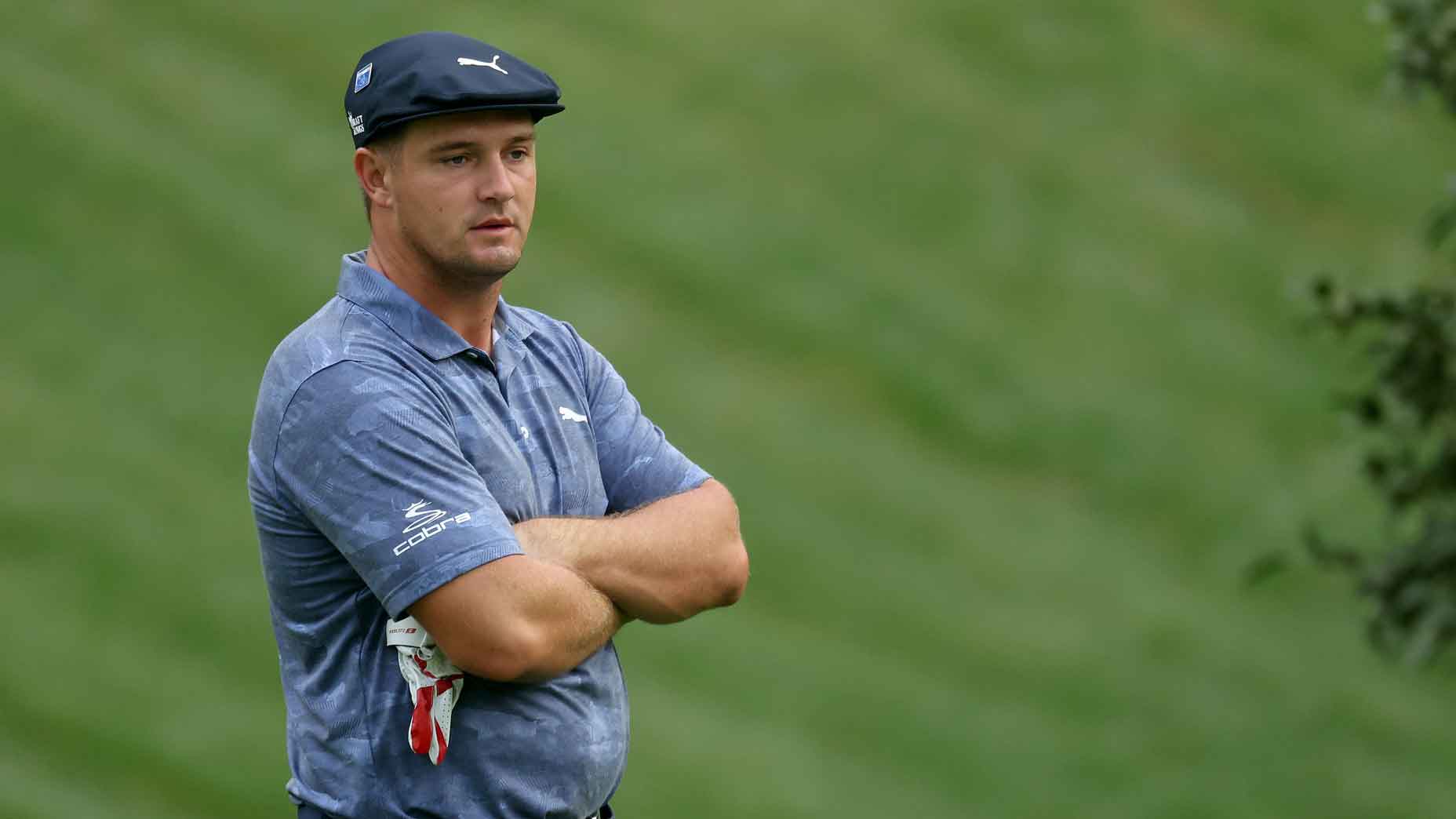World No. 6 Bryson DeChambeau isn’t shy about his desire to be the No. 1 player in the world. His unorthodox methods to achieve that goal are well-documented, but none more so than his decision to pack on 20 lbs of muscle last year in an effort to become the Tour’s longest bomber.
With 10 top-10s in 2020 — including two wins, the Rocket Mortgage Classic and his first major championship, the U.S. Open — it’s safe to say that whatever DeChambeau is doing is working. But in a lengthy media call on Wednesday ahead of February’s Saudi International, DeChambeau acknowledged that his seemingly endless pursuit of faster ball speed and greater distance off the tee takes both a mental and physical toll.
“Normally I would have played Sony because I was already [in Hawaii] but I decided not to for personal reasons, to try and get stronger, get healthier and be able to sustain longer periods of time of swinging it fast,” DeChambeau said. “[The Sentry Tournament of Champions] was the first time I was over 200 miles an hour on the driving range for an extended period of time throughout the whole week. Every practice session I went to, I was over 200 on my driver. It was the first time I’ve ever done that, and it’s taken a toll on my body that I eventually will get used to.”
So what does it feel like to touch 200 mph for a week straight?
“It’s fatigue. It’s total endurance. I don’t have the endurance to be able to swing that fast for that long and be comfortable with it,” DeChambeau said. “For example, we can all swing it around, you know, 50 miles an hour and never take a toll on your bodies or we can walk a golf course and it really doesn’t take that much of a toll on our body. But if you were to sprint around a golf course, what if you were to swing it 135 miles an hour every single time with a driver for a week straight. It takes a totally different toll on your body and your body has to get comfortable with being uncomfortable, so that eventually it doesn’t become a stress on you at the end of the day.”
DeChambeau also went into detail regarding his mysterious illness at the Masters in November, and whether he ever received an official diagnosis of what went wrong. DeChambeau said he underwent a battery of tests which all came back fine, but for overworked area: his brain.
“The one thing I will tell you is that I’ve done a lot of brain training with Neuropeak, and the frontal lobe of my brain was working really, really hard and that’s kind of what gave me some weird symptoms, like crazy overworking,” DeChambeau said. “So as I started to relax my brain a little bit and just get into a more comfortable situation and got on a really good sleep schedule routine, a lot of those symptoms went away and they come back every once in a while but as I do a lot of breathing, it goes away and that’s really what I’m focused on trying to do.”
DeChambeau revealed that he’s currently focusing on gut health, “eating well, eating right and feeding my body with the right sources to make sure this head stuff doesn’t ever come back.”
For DeChambeau, it appears that 2021 will be about a wholistic approach to his game, incorporating both mind and body in unison.
“I’m really working with Chris Como on it with this new game and new approach,” DeChambeau said. “I would say I’m focusing on my health in regards to my body, more importantly, because if my body feels good, my mental game is going to be good.”
DeChambeau will join a bevy of PGA Tour stars, including Dustin Johnson, Patrick Reed and Phil Mickelson, at the Saudi International February 4-7.
